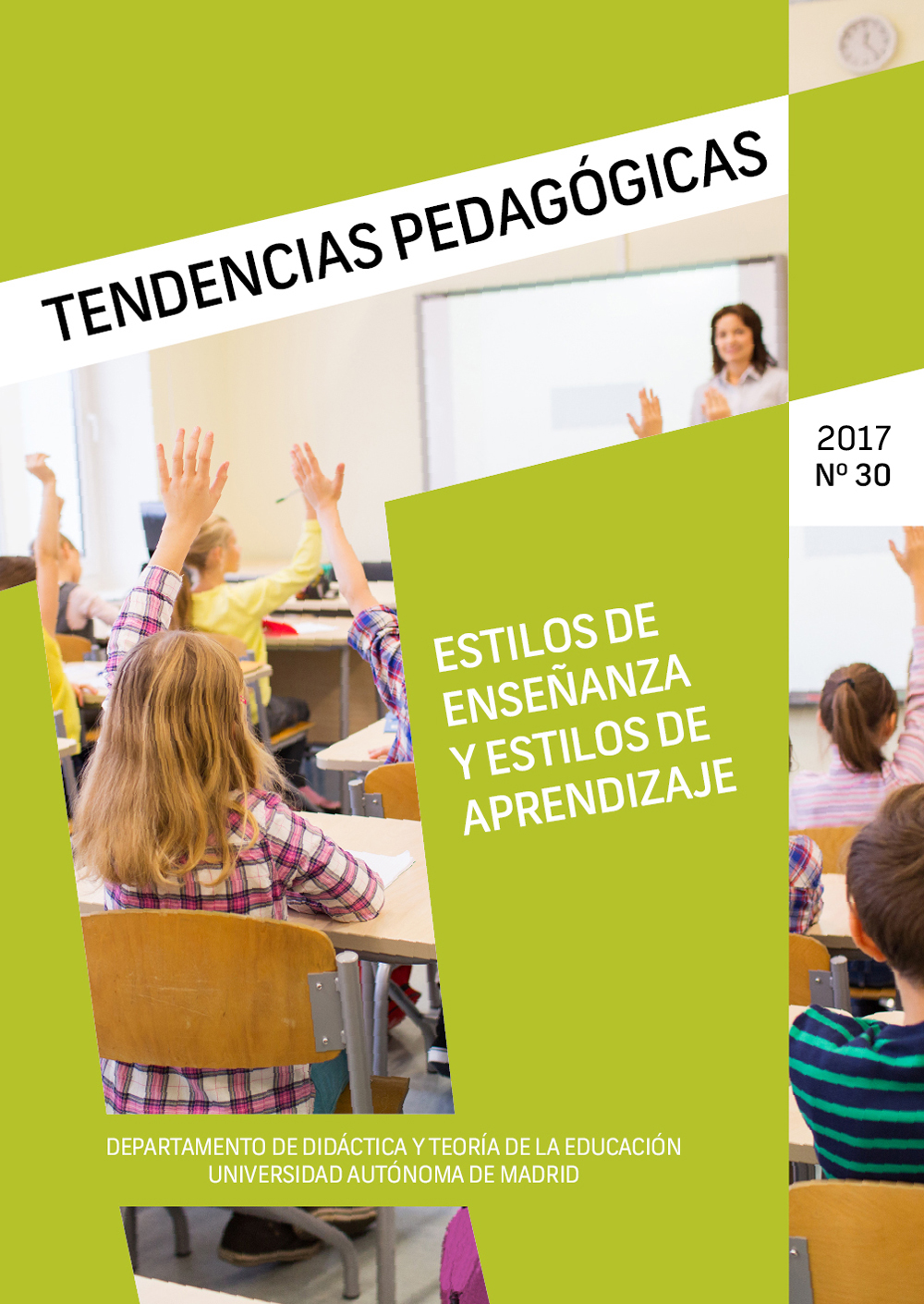Students’ perception regarding the development of the intercultural competence in the tellecolaborative etwinning project "Preparados para un Erasmus!/Prêts pour un Erasmus!"
Keywords:
eTwinning, TwinSpace, CSC, key competences, Erasmus .Abstract
In this study, we present the findings of an on-line collaborative project eTwinning between secondary school students of French as a Foreign Language in a Spanish high school and secondary school students of Spanish as a Foreign Language in a French high school during one semester of the academic year 2015-2016. The students worked together in small groups in the online platform TwinSpace, exchanging personal and socio-cultural information and corrections about each other’s language (Spanish and French) in discussion forums with the aim to improve their intercultural competence. Data was gathered from two instruments that included the student’s answers to a questionnaire and an interview at the end of the project. The quantitative and qualitative analysis seems to suggest regarding the participant’s perception that there are evidences of development of intercultural competence as presented in Byram’s model (1997, 2000).Downloads
References
Belz, J. (2003). Linguistic perspectives on the development of intercultural competence in telecollaboration. Language Learning & Technology, 7(2), 68-117. Recuperado de http://llt.msu.edu/vol7num2/belz/
Belz, J. (2007). The development of intercultural communicative competence. On-line Intercultural Exchange: An Introduction for Foreign Language Teachers. Clevedon: Multilingual Matters. 127-166.
Byram, M. (1997). Teaching and Assessing Intercultural Communicative Competence. Clevedon, England: Multilingual Matters.
Byram, M. (2000). Assessing intercultural competence in language teaching. Sprogforum 18(6): 8-13. Recuperado de http://inet.dpb.dpu.dk/info- dok/sprogforum/Espr18/byram.html
Cassells, D., Gilleran, A,. Morvan, C. & Scimeca, S. (2015). La Generación eTwinning. Bruselas, Bélgica: Servicio Central de Apoyo eTwinning. Recuperado de https://www.etwinning.net/eun-files/generation/es.pdf
Christie, K. (2007). Learning to speak the world’s languages. Phi Delta Kappan, 88(9), 645-647. https://doi.org/10.1177/003172170708800903
Chomsky, N. (2000). La aldea global (5ª ed.). Buenos Aires: Ed. Txalaparta S.L.
Departamento de Política Lingüística del Consejo de Europa. (2001). Marco común europeo de referencia para las lenguas: aprendizaje, enseñanza, evaluación. Recuperado de http://cvc.cervantes.es/ensenanza/biblioteca_ele/marco/cvc_mer.pdf
Crawley, C., Gilleran, A., Joyce, A. y Maurice, M. & Van de Craen, P. (2008). eTwinning una aventura a través de la cultura y los idiomas. Bélgica, Bruselas. Servicio Central de Apoyo eTwinning. Recuperado de http://files.etwinning.net/shared/data/etwinning/booklet/etwinning_handbook_2008/etwinning_handbook_es.pdf
Gómez, M. (2015). El estado de la cuestión III: Binomio Educación y TIC hoy. EDMETIC, Revista de Educación Mediática y TIC, 4 (2): 3-6 Recuperado de https://dialnet.unirioja.es/servlet/articulo?codigo=5192040
Furstenberg, G., Levet, S., English, K. & Maillet & K. (2001). Giving virtual voice to the silent language of culture. The Cultura project. Language Learning and Technology 5 (1): 55-102. Recuperado de http://llt.msu.edu/vol5num1/furstenberg/default.html
Kearney, C. & Gras-Velázquez, À., (2015). Una década de eTwinning: repercusiónen las prácticas, habilidades y oportunidades de desarrolloprofesional de sus docentes, contado por ellos mismos. Bruselas, Bélgica: Servicio Central de Apoyo eTwinning.
Liaw, M. (2006). E-learning and the development of intercultural competence. Language Learning and Technology, 10 (3), 49-64.
Moreno, B. (2007). La acción eTwinning: una herramienta didáctica innovadora para el aprendizaje colaborativo mediante las TICs. Revista Digital de Educación I-1 (1):1-5.
Moreno, B. (2008). La acción eTwinning: situación actual y necesidades formativas del profesorado. Revista DIM: Didáctica, Innovación y Multimedia, 12. Recuperado de https://dialnet.unirioja.es/servlet/articulo?codigo=2902748
Müller-Hartmann, A. (2006). Learning how to teach intercultural communicative competence via collaborative: A model for language teacher education. En J.A. Belz y S. Thorne (Eds.), Internet-mediated intercultural foreign language education, 63-84. Boston: Heinle & Heinle.
O’Dowd, R. (2003). Understanding the ‘other side’: intercultural learning in a Spanish-English e-mail exchange. Language Learning and Technology, 7(2):118-144. Recuperado de http://llt.msu.edu/vol7num2/odowd/default.html
O’Dowd, R. (2013a). Telecollaborative networks in university higher education: Overcoming barriers to integration. Internet and Higher Education 18, 47-53.
https://doi.org/10.1016/j.iheduc.2013.02.001
O’Dowd, R. (2013b). The competences of the telecollaborative teacher. The Language Learning Journal, 1-14.
Schultz, R. A., Lalande, J.F. I., Dyksta-Pruim, P., Zimmer-Loew, H., y
James, C.J. (2005). In pursuit of cultural competence in the German language classroom: Recommandations of the AATG Task Force on the Teaching of Culture. Die Unterrichtpraxis/ Teachins German, 38 (2), 172-188.
UNESCO, (2013). Replantear la educación en un mundo en mutación. Recuperado de http://unesdoc.unesco.org/images/0022/002247/224743S.pdf
Van Ek, J.A. 1986. Objectives for Foreign Language Learning 1: Scope. Strasbourg: Council of Europe.
Vinagre, M. (2007). Integrating tandem in higher education. En O’Dowd, R. (Ed.) On-line intercultural exchange: An introduction for foreign language teachers (pp.240-249) Clevedon: Multilingual Matters.
Vinagre, M. (2010). Intercultural learning in asynchronous telecollaborative exchanges: A case study. Eurocall Review, 17. Recuperado de http://www.eurocall-languages.org/review/17/index.html - vinagre
Vinagre, M. (2014). El desarrollo de la competencia intercultural en los intercambios telecolaborativos. RED (Revista de Educación a Distancia) 41, 1-21. Monográfico Interculturalidad en el nuevo paradigma educativo.
Vinagre, M. (2016). Promoting intercultural competence in culture and language studies: Outcomes of an international collaborative project. In Martín-Monje, E., Elorza, I. & García Riaza, B. (eds.) Technological advances in specialized linguistic domains: Practical applications and mobility, 37-52. Oxon: Routledge.
Vygotsky, L. S. (1987). Thinking and speech. In L. S. Vygotsky, collected works. New York: Plenum.
